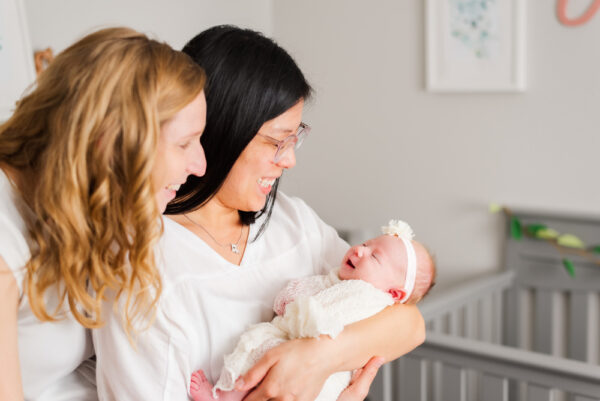Female infertility is treatable when you work with the right clinic
 At Fertility Specialists of Texas, we know that patients are often surprised to learn that they are dealing with female infertility. That’s because people typically don’t realize how common infertility in women is. About 10% of U.S. women of reproductive age will have trouble getting or staying pregnant. Thankfully, our LGBT fertility center team can help.
At Fertility Specialists of Texas, we know that patients are often surprised to learn that they are dealing with female infertility. That’s because people typically don’t realize how common infertility in women is. About 10% of U.S. women of reproductive age will have trouble getting or staying pregnant. Thankfully, our LGBT fertility center team can help.
Your doctor will start by identifying the reason why you’re having trouble welcoming a baby. This involves taking a medical history and ordering fertility testing. Once we have the results, your doctor will then work with you to develop a customized treatment plan to help you achieve your family-building goals.
What are some causes of infertility in women?
Human reproduction is complex, so there are many causes of female infertility. The following diagnoses are some of the most common ones that we see at our LGBT fertility center.
Age-related infertility. Women are born with all the eggs they will ever have. Over time, a woman’s ovarian reserve (egg supply) decreases. Not only that, but her egg quality also declines. To diagnose this issue, our doctors typically order bloodwork to test a patient’s hormone levels.
Polycystic ovary syndrome (PCOS). Patients with this common endocrine disorder often do not ovulate regularly or at all, making it more difficult to conceive naturally. In some cases, patients have symptoms that suggest PCOS, while other patients need more testing to reach a diagnosis.
Endometriosis. This condition occurs when the uterine lining grows in places outside of the uterus. Some women with endometriosis have quite severe pain, while others might feel no pain at all. Many patients with this condition also experience infertility due to the growths.
Tubal infertility. Issues with the fallopian tubes can make it more difficult to conceive. In some cases, a fallopian tube blockage causes the issue, while a hydrosalpinx (a fluid-filled tube) can lead to the problem in other situations.
Unexplained infertility. In some cases, a patient may have trouble conceiving, only to see all their test results come back normal. It can be frustrating to not have an answer about what’s causing female infertility. However, we do have treatments that can help with unexplained infertility.
What are the options to overcome female infertility?
The treatment that your doctor will recommend depends largely on your diagnosis. Each type of infertility in women will benefit from a different type of treatment.
For example, a patient with PCOS can often conceive with help from fertility medications and intrauterine insemination (IUI). As for tubal infertility and endometriosis, in vitro fertilization (IVF) is typically the best path forward. Donor sperm will also play a role in these fertility treatments for lesbian couples and single women.
Regardless of which treatment your doctor recommends, you can count on our LGBT fertility center team to guide you every step of the way. Contact us if you’d like to learn more about how we can help you welcome a baby.


